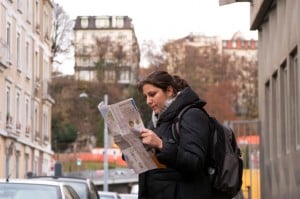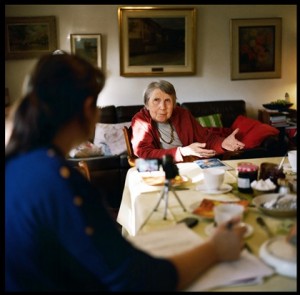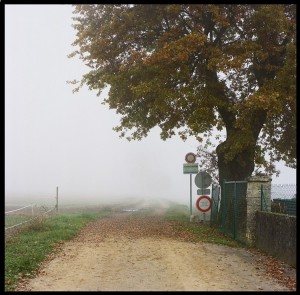 My global perspective has truly evolved during my Fulbright grant in Lausanne, Switzerland. The essence of my Fulbright research has been to record and analyze oral histories of child Holocaust survivors who were rescued as refugees and brought into Switzerland during World War II. My project has become much more than a series of interviews with some of the world’s most unique individuals. By meeting people who experienced one of history’s darkest periods of persecution and fanaticism, I have learned perhaps one of the most important lessons influencing my perspective: meaningful work and life in a multicultural environment require truly accepting others and extending oneself to build trust. Many of the Holocaust survivors I’ve interviewed were rescued by non-Jewish citizens of different nationalities who risked their lives to combat the hatred the Nazi regime embodied. Through their experiences with genocidal madness, these survivors have solidified my global perspective and helped me to believe in the strength of the individual.
My global perspective has truly evolved during my Fulbright grant in Lausanne, Switzerland. The essence of my Fulbright research has been to record and analyze oral histories of child Holocaust survivors who were rescued as refugees and brought into Switzerland during World War II. My project has become much more than a series of interviews with some of the world’s most unique individuals. By meeting people who experienced one of history’s darkest periods of persecution and fanaticism, I have learned perhaps one of the most important lessons influencing my perspective: meaningful work and life in a multicultural environment require truly accepting others and extending oneself to build trust. Many of the Holocaust survivors I’ve interviewed were rescued by non-Jewish citizens of different nationalities who risked their lives to combat the hatred the Nazi regime embodied. Through their experiences with genocidal madness, these survivors have solidified my global perspective and helped me to believe in the strength of the individual.
 Living and working in Switzerland as a Fulbright U.S. Student is exciting and challenging. I have received an incredible response from the international and Swiss academic community, meeting with top World War II history scholars and gaining advice from some key players in the field. I also had the unique opportunity to meet Mr. Serge Klarsfeld, the most famous modern lawyer known for trying Nazi criminals for crimes against humanity, and to speak with him about my Fulbright experience. The respect I’ve gained as an up-and-coming scholar in Switzerland is rare. The support from communities in Lausanne, Zurich, Basel, Geneva, and other local Swiss governments has been overwhelming. I even had a chance to accompany a Swiss historian on a day-long trip across the French-Swiss border to learn about the history of border crossings during World War II and to gain a visual for my documented stories. Additionally, videotaping interviews with the last generation of Holocaust survivor children (specifically, adolescents who were rescued and taken to Switzerland to escape Nazi persecution) has been an eye-opening experience. Some survivors escaped through legal routes like the KinderTransport that left Germany for Switzerland right before the war, and others escaped clandestinely with organizations and “passeurs,” or smugglers, risking their lives to cross French and German borders into Switzerland.
Living and working in Switzerland as a Fulbright U.S. Student is exciting and challenging. I have received an incredible response from the international and Swiss academic community, meeting with top World War II history scholars and gaining advice from some key players in the field. I also had the unique opportunity to meet Mr. Serge Klarsfeld, the most famous modern lawyer known for trying Nazi criminals for crimes against humanity, and to speak with him about my Fulbright experience. The respect I’ve gained as an up-and-coming scholar in Switzerland is rare. The support from communities in Lausanne, Zurich, Basel, Geneva, and other local Swiss governments has been overwhelming. I even had a chance to accompany a Swiss historian on a day-long trip across the French-Swiss border to learn about the history of border crossings during World War II and to gain a visual for my documented stories. Additionally, videotaping interviews with the last generation of Holocaust survivor children (specifically, adolescents who were rescued and taken to Switzerland to escape Nazi persecution) has been an eye-opening experience. Some survivors escaped through legal routes like the KinderTransport that left Germany for Switzerland right before the war, and others escaped clandestinely with organizations and “passeurs,” or smugglers, risking their lives to cross French and German borders into Switzerland.
 As a Fulbright cultural ambassador to Switzerland from the United States, I have been able to make many connections that have enhanced my research. At the United States Ambassador’s reception for Fulbrighters and alumni in Bern, I was able to meet Laura Bernier, a professional photographer and former Fulbrighter to Switzerland. Since this meeting, Laura and I have been working together on a photographic representation of my research. We’ve taken photos of the places in Switzerland where refugee children crossed borders and subsequently lived and worked, as well as portraits of the Holocaust survivors I’ve interviewed. Ultimately, I cannot wait to finish my research, which will culminate in the publication of an article in an academic journal and also in a presentation at the United States Embassy in Switzerland in May 2012. The Fulbright Program has allowed me to shed light on a multifaceted aspect of World War II and to showcase one of its little known histories.
As a Fulbright cultural ambassador to Switzerland from the United States, I have been able to make many connections that have enhanced my research. At the United States Ambassador’s reception for Fulbrighters and alumni in Bern, I was able to meet Laura Bernier, a professional photographer and former Fulbrighter to Switzerland. Since this meeting, Laura and I have been working together on a photographic representation of my research. We’ve taken photos of the places in Switzerland where refugee children crossed borders and subsequently lived and worked, as well as portraits of the Holocaust survivors I’ve interviewed. Ultimately, I cannot wait to finish my research, which will culminate in the publication of an article in an academic journal and also in a presentation at the United States Embassy in Switzerland in May 2012. The Fulbright Program has allowed me to shed light on a multifaceted aspect of World War II and to showcase one of its little known histories.
For those recent graduates applying to the Fulbright Program to pursue a study or research grant, my advice is simple:
- Find a project about which you are truly passionate and let your love for the subject shine through in your application.
- Once you’ve found a great idea, focus and ground yourself in realistic expectations.
- Make sure your essays reveal your personality, but are also focused on what you can reasonably accomplish in a short year, why your research must be funded and why you are the right person for your project.
- Rally support from professors, scholars in the field and others. Don’t be shy in asking for advice from your Fulbright Program Adviser or former Fulbrighters.
The Fulbright experience — the unique opportunity to follow a passion for one year — is worth any challenge you may encounter beforehand. I wish the best of luck to all of the 2012-2013 applicants!
Top photo: Samantha Lakin, 2011-2012, Switzerland, navigating the streets of Lausanne
Middle photo: Samantha Lakin, 2011-2012, Switzerland, interviewing a Holocaust survivor
Bottom photo: The French-Swiss Border, Crossing Point 50
All photos taken by Fulbright alumna Laura Bernier, 2008-2009, Switzerland
